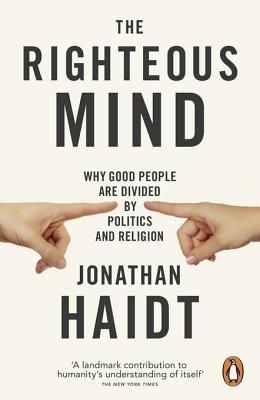More on this book
Community
Kindle Notes & Highlights
Gods (like maypoles) are tools that let people bind themselves together as a community by circling around them.
group-level adaptations for producing cohesiveness and trust.
cannot shake the basic religious psychology
John Locke, one of the leading lights of the Enlightenment, wrote that “promises, covenants, and oaths, which are the bonds of human society, can have no hold upon an atheist.
markets that require very high trust to function efficiently (such as a diamond market) are often dominated by religiously bound ethnic groups (such as ultra-Orthodox Jews), who have lower transaction and monitoring costs than their secular competitors.
So religions do what they are supposed to do.
they help people “to achieve together what they cannot achieve on their own.”
American Grace: How Religion Divides and Unites Us, political scientists Robert Putnam and David Campbell
religiously observant Americans are better neighbors and better citizens than secular Americans—they
“It is religious belongingness that matters for neighborliness, not religious believing.”
if you are an atheist living in a looser community with a less binding moral matrix, you might have to rely somewhat more on an internal moral compass,
They are the least efficient societies ever known at turning resources (of which they have a lot) into offspring (of which they have few).
You’re nearly done reading a book on morality, and I have not yet given you a definition of morality.
“What is moral is everything that is a source of solidarity, everything that forces man to … regulate his actions by something other than … his own egoism.”
a sociologist, Durkheim focused on social facts—things that exist outside of any individual mind—which constrain the egoism of individuals. Examples of such social facts include religions, families, laws, and the shared networks of meaning that I have called moral matrices.
Because I’m a psychologist, I’m going to insist that we include inside-the-mind stuff too, such as the moral emotions, the inner lawyer (or press secretary), the six moral foundations, the hive switch, and all the other e...
This highlight has been truncated due to consecutive passage length restrictions.
Moral systems are interlocking sets of values, virtues, norms, practices, identities, institutions, technologies, and evolved psychological mechanisms that work together to suppress or regulate self-interest and make cooperative societies possible.
a functionalist definition.
any effort to define morality by designating a few issues as the truly moral ones and dismissing the rest as “social convention” is bound to be parochial.
So far in this book I have been entirely descriptive.
a Durkheimian version of utilitarianism would recognize that human flourishing requires social order and embeddedness.
social order is extraordinarily precious and difficult to achieve.
I don’t know what the best normative ethical theory is for individuals in their private lives.
But when we talk about making laws and implementing public policies in Western democracies that contain some degree of ethnic and moral diversity, then I think there is no compelling alternative to utilitarianism.
I just want Bentham to read Durkheim and recognize that we are Homo duplex before he tells any of us, or our legislators, how to go about maximizing that total good.
does it have to be this nasty?
“oppo” (opposition research),
dig up dirt on opponents
America’s hyperpartisanship
Here’s a simple definition of ideology: “A set of beliefs about the proper order of society and how it can be achieved.”
the most basic of all ideological questions: Preserve the present order, or change it? At the French Assembly of 1789, the delegates who favored preservation sat on the right side of the chamber,
Political theorists since Marx had long assumed that people chose ideologies to further their self-interest.
self-interest does a remarkably poor job of predicting political attitudes.
identical twins were more similar on just about everything.
Innate does not mean unmalleable; it means organized in advance of experience.
only the first draft,
The draft gets revised by childhood...
This highlight has been truncated due to consecutive passage length restrictions.
threat sensitivity
openness to experience
Dan McAdams.
“dispositional traits,”
adjustments to dials on brain systems that everyone has.
fraternal twins, a brother and sister
“characteristic adaptations.”
in response to the specific environments and challenges
different sets of genes gave them different first drafts of their minds, which led them down different paths, through different life experiences, and into different moral subcultures.
By the time they reach adulthood they have become very different people whose one point of political agreement is that they must not talk about politics when the sister comes home for the holidays.
The human mind is a story processor, not a logic processor.
“life narratives”
Life narratives are saturated with morality.


